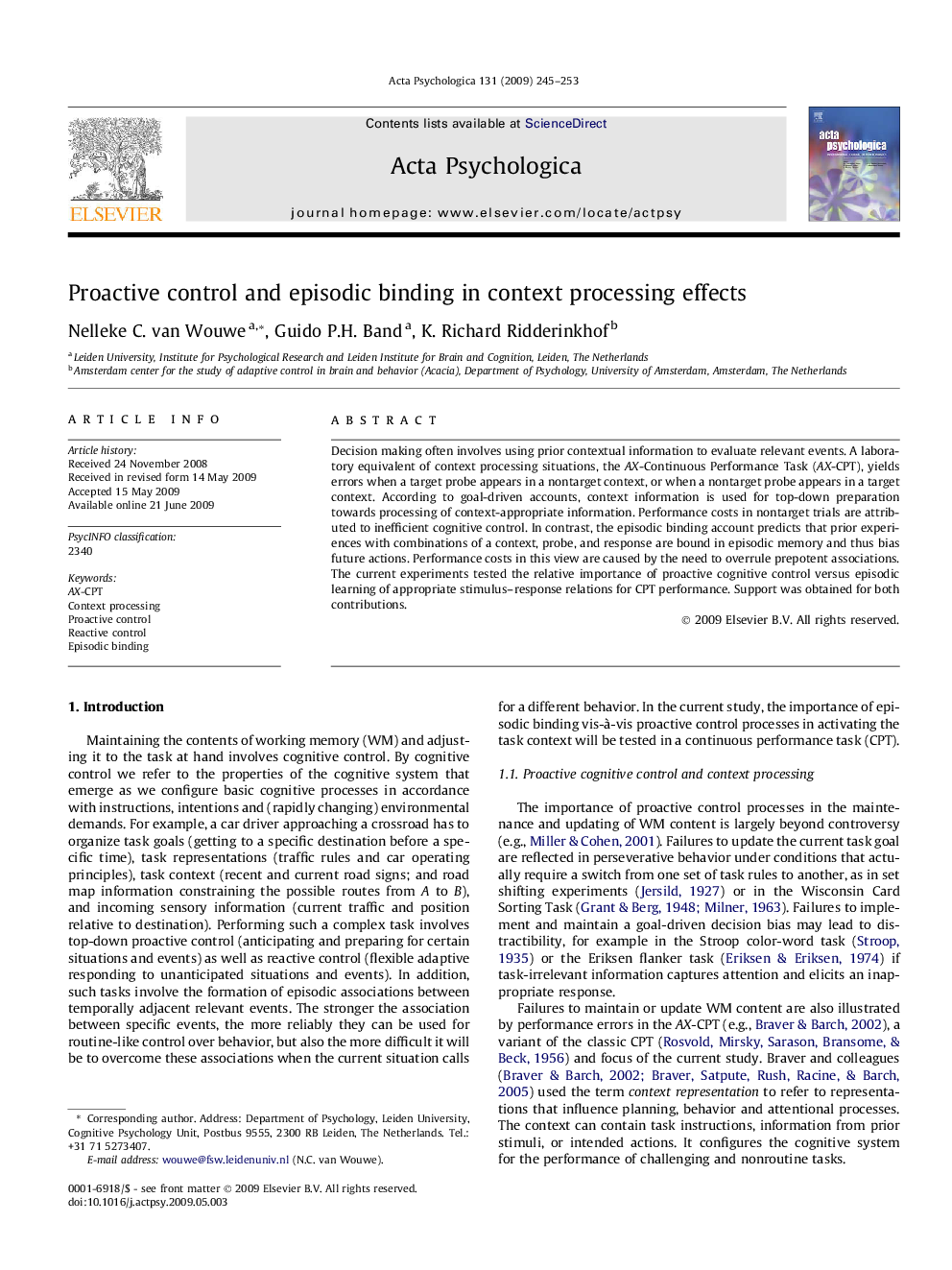| Article ID | Journal | Published Year | Pages | File Type |
|---|---|---|---|---|
| 920452 | Acta Psychologica | 2009 | 9 Pages |
Decision making often involves using prior contextual information to evaluate relevant events. A laboratory equivalent of context processing situations, the AX-Continuous Performance Task (AX-CPT), yields errors when a target probe appears in a nontarget context, or when a nontarget probe appears in a target context. According to goal-driven accounts, context information is used for top-down preparation towards processing of context-appropriate information. Performance costs in nontarget trials are attributed to inefficient cognitive control. In contrast, the episodic binding account predicts that prior experiences with combinations of a context, probe, and response are bound in episodic memory and thus bias future actions. Performance costs in this view are caused by the need to overrule prepotent associations. The current experiments tested the relative importance of proactive cognitive control versus episodic learning of appropriate stimulus–response relations for CPT performance. Support was obtained for both contributions.
